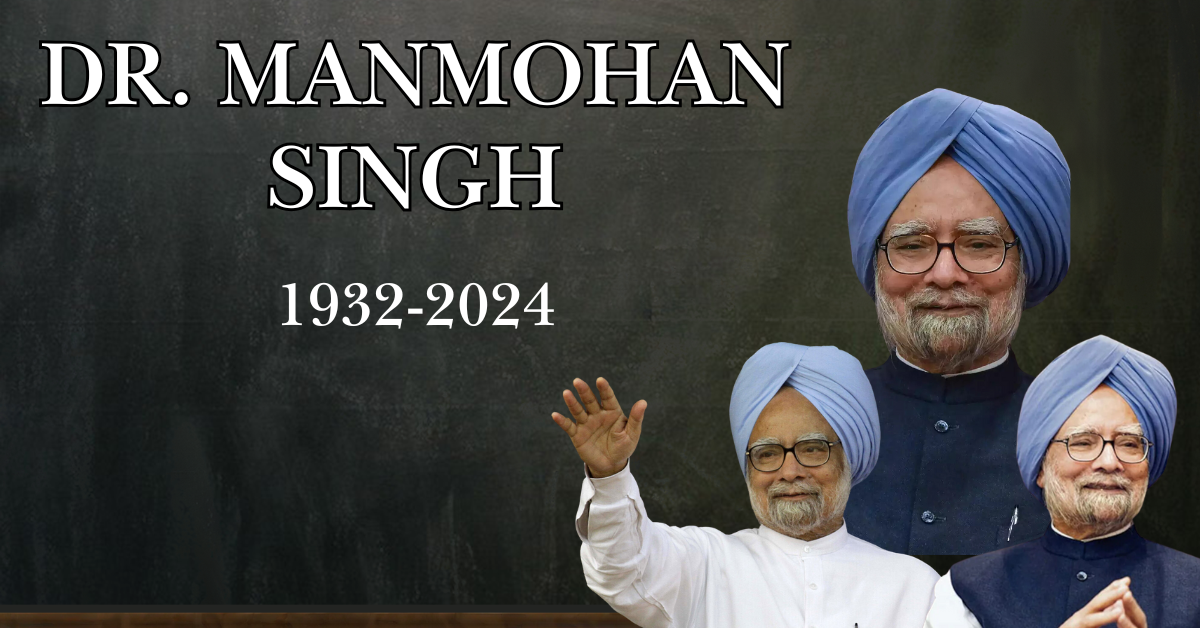From Scholar to Leader: Introduction
Dr. Manmohan Singh, India’s 13th Prime Minister, is known for his honesty, intelligence, and calm approach. His journey from modest beginnings to becoming one of India’s most important leaders highlights his dedication. As an economist, administrator, and reformer, Dr. Singh has made lasting changes to India’s economy and politics.
Education and Early Career
Dr. Singh was born in Gah (now in Pakistan) on September 26, 1932. From a young age, he was brilliant in his studies. He graduated from Punjab University with a degree in Economics and went on to study at the University of Cambridge and Oxford University. His PhD focused on India’s export potential, showing his deep understanding of economic policies.
Returning to India, he worked as a professor and held important roles in institutions like the Reserve Bank of India (RBI) and the Planning Commission, where his ideas shaped India’s financial policies.
Entering Politics
In 1991, when India faced a serious financial crisis, Dr. Singh was chosen as Finance Minister by Prime Minister P.V. Narasimha Rao. This marked the start of his political journey and his role as a reformer.
The 1991 Economic Crisis
India was in deep trouble in 1991, with low foreign reserves and mounting debt. As Finance Minister, Dr. Singh introduced major reforms that opened up India’s economy, ended strict trade controls, and welcomed foreign investments. His policies transformed India into a growing global economy. His 1991 budget speech, quoting Victor Hugo—“No power on earth can stop an idea whose time has come”—is remembered as iconic.
Prime Minister: 2004-2014
Dr. Singh served as Prime Minister for two terms. His calm leadership helped him manage the challenges of coalition politics effectively.
Key Achievements in the First Term (2004-2009)
- Economic Growth: India’s economy grew rapidly, and poverty alleviation programs like MGNREGA provided rural employment and economic security.
- Transparency and Reforms: The Right to Information Act (2005) empowered citizens to demand accountability from the government.
- U.S.-India Nuclear Deal: Despite challenges, Dr. Singh finalized this deal, securing energy resources for India.
- Education and Healthcare: Programs like Sarva Shiksha Abhiyan boosted primary education, while the National Rural Health Mission (NRHM) improved healthcare access.
Second Term Challenges and Triumphs (2009-2014)
- Food Security Act: Ensured affordable food for millions, addressing hunger and malnutrition.
- Technology Advancements: Introduced Aadhaar, a national ID system, to improve service delivery.
- Rural Development: Programs like Bharat Nirman improved infrastructure in rural areas.
Long-Term Impact
Dr. Singh’s policies in education, healthcare, and technology had far-reaching effects. His emphasis on renewable energy and women’s empowerment through laws like the Domestic Violence Act (2005) reflected his vision for a progressive India.
Legacy of Statesmanship
Dr. Manmohan Singh’s tenure exemplified leadership rooted in integrity, knowledge, and a deep understanding of India’s socio-economic challenges. Despite criticism and challenges, his ability to navigate crises, introduce transformative policies, and maintain a calm demeanor under pressure underscored his statesmanship.
His emphasis on inclusive growth, transparency, and modernization has left a lasting impact on India. While his quiet, unassuming style often drew detractors, history recognizes him as a leader who placed the nation’s interests above all.
Conclusion: A Visionary Leader
Dr. Manmohan Singh’s journey from a village in Punjab to the corridors of power in Delhi is a narrative of dedication, intellect, and service. As an economist and a statesman, his contributions have shaped modern India, ensuring its place on the global stage. Singh’s legacy is not merely of economic reforms or policies but of an enduring commitment to the ideals of democracy, equality, and progress. For generations to come, his statesmanship will inspire leaders to prioritize the greater good over personal ambition.

